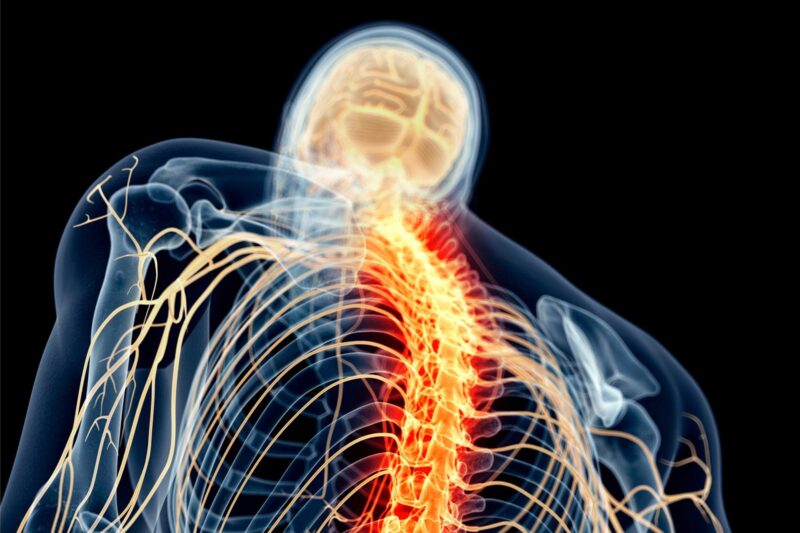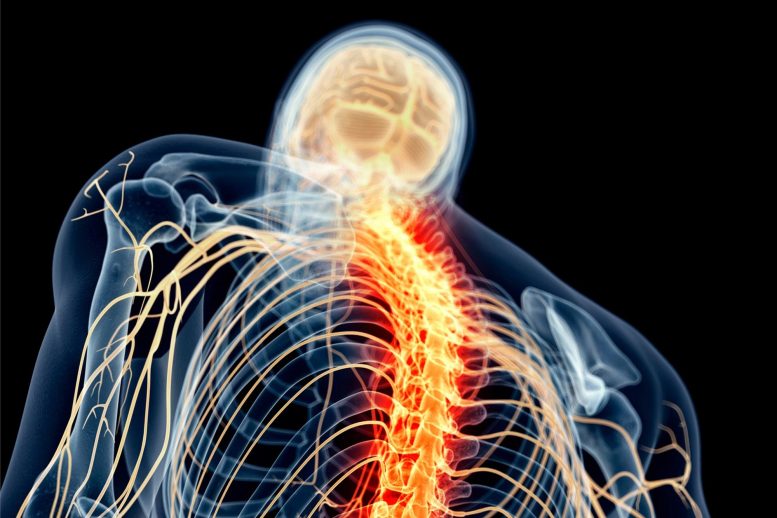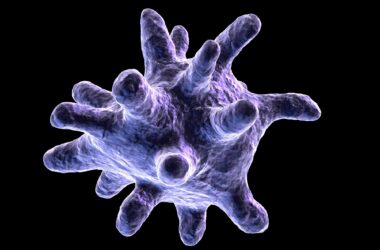Une étude menée par l’UCSF montre que la surstimulation du système immunitaire peut être à l’origine de symptômes cognitifs.
Certains patients qui développent de nouveaux symptômes cognitifs après un léger épisode de COVID présentent des anomalies dans leur liquide céphalo-rachidien similaires à celles observées chez les personnes atteintes d’autres maladies infectieuses. Cette découverte pourrait permettre de mieux comprendre comment SARS-CoV-2 impacts the brain.
In a small study with 32 adults, comprising 22 with cognitive symptoms and 10 control participants without, researchers from UC San Francisco and Weill Cornell Medicine, New York, analyzed the cerebrospinal fluid of 17 of the participants who consented to lumbar puncture. All participants had had COVID but had not required hospitalization.
They found that 10 of 13 participants with cognitive symptoms had anomalies in their cerebrospinal fluid. But all four of the cerebrospinal samples from participants with no post-COVID cognitive symptoms were normal. The research was published in Annals of Clinical and Translational Neurology.
The average age of the participants with cognitive symptoms was 48, versus 39 for the control group. Participants with these symptoms presented with executive functioning issues, said senior author Joanna Hellmuth, MD, MHS, of the UCSF Memory and Aging Center. “They manifest as problems remembering recent events, coming up with names or words, staying focused, and issues with holding onto and manipulating information, as well as slowed processing speed,” she said.
“Brain fog” is a common after-effect of COVID, affecting some 67 percent of 156 patients at a post-COVID clinic in New York, a study published this month shows. In the current study, patients were enrolled in the Long-term Impact of Infection with Novel Coronavirus (LIINC) study that evaluates recovery in adults with confirmed SARS-CoV-2.
Examinations of the cerebrospinal fluid revealed elevated levels of protein, suggesting inflammation, and the presence of unexpected antibodies found in an activated immune system. Some were found in the blood and cerebrospinal fluid, implying a systemic inflammatory response, or were unique to the cerebrospinal fluid, suggesting brain inflammation. While the targets of these antibodies are unknown, it is possible that these could be “turncoat” antibodies that attack the body itself.
Immune System Runs Amok Months After COVID
“It’s possible that the immune system, stimulated by the virus, may be functioning in an unintended pathological way,” said Hellmuth, who is principal investigator of the UCSF Coronavirus Neurocognitive Study and is also affiliated with the UCSF Weill Institute for Neurosciences. “This would be the case even though the individuals did not have the virus in their bodies,” she said, noting that the lumbar punctures took place on average 10 months after the participants’ first COVID symptom.
The researchers also found that the participants with cognitive symptoms had an average of 2.5 cognitive risk-factors, compared with an average of less than one risk factor for participants without the symptoms. These risk-factors included diabetes and hypertension, which can increase the risk of stroke, mild cognitive impairment and vascular dementia; and a history of ADHD, which may make the brain more vulnerable to executive functioning issues. Other risk factors included anxiety, depression, a history of heavy alcohol or repeated stimulant use, and learning disabilities.
Testing May Fall Short in Diagnosing Mild Cognitive Disorders
All participants underwent an in-person cognitive testing battery with a neuropsychologist, applying equivalent criteria used for HIV-associated neurocognitive disorder (HAND). Surprisingly, the researchers found that 13 of the 22 participants (59 percent) with cognitive symptoms met HAND criteria, compared with seven of the 10 control participants (70 percent). “Comparing cognitive performance to normative references may not identify true changes, particularly in those with a high pre-COVID baseline, who may have experienced a notable drop but still fall within normal limits,” said Hellmuth.
“If people tell us they have new thinking and memory issues, I think we should believe them rather than require that they meet certain severity criteria.”
Cognitive symptoms have been identified in other viruses, in addition to COVID and HIV. These include the coronaviruses SARS and MERS, hepatitis C and Epstein-Barr virus.
Reference: “Risk factors and abnormal cerebrospinal fluid associate with cognitive symptoms after mild COVID-19” by Alexandra C. Apple, Alexis Oddi, Michael J. Peluso, Breton M. Asken, Timothy J. Henrich, J. Daniel Kelly, Samuel J. Pleasure, Steven G. Deeks, Isabel Elaine Allen, Jeffrey N. Martin, Lishomwa C. Ndhlovu, Bruce L. Miller, Melanie L. Stephens and Joanna Hellmuth, 19 January 2022, Annals of Clinical and Translational Neurology.
DOI: 10.1002/acn3.51498
Co-Authors: First author is Alexandra C. Apple, PhD, of the UCSF Memory and Aging Center and the Weill Institute for Neurosciences. For a complete list of co-authors, please refer to the paper.
Funding and Disclosures: The research is supported by grants from the National Institutes of Health/NIMH (K23MH114724) and the National Institutes of Health/NINDS (R01NS118995-14S). For a full list of disclosures, please refer to the paper.




